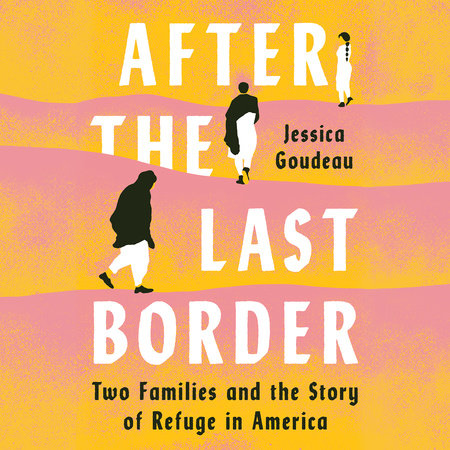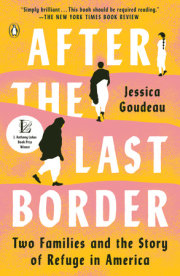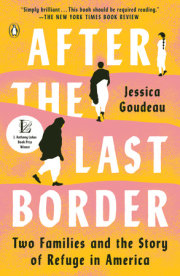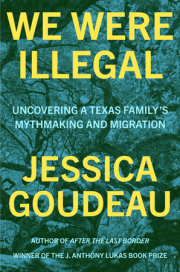Prologue
Mu Naw
Myanmar/Thailand border, 1989
Mu Naw is five and she is running. Thick wet grass rises higher than her chubby thighs and she lifts her legs as if she is marching, almost jumping to keep up with the frantic adults. Her mouth is silent, but her body makes noises because she hasn’t learned yet how to run and hide well in the woods. Her mother is carrying her baby sister; her toddler brother is with her aunt. Mu Naw struggles valiantly, pushes back tall plants, breathes hard, but she cannot keep up. Her young uncle swings her up onto his shoulders and she wraps her arms under his neck, lays her cheek on his head to keep it out of the way of slapping branches, and holds on.
They run for three days. On the back trails in the mountains, they encounter another family. They are wary at first, but soon realize they are prey hunted by the same predators. They run together. There is safety in numbers. They pool what knowledge they have. Someone heard there are openings at a refugee camp across the river in Thailand. They set off in that direction.
At night, in the darkness, in hushed voices, they share their stories.
Mu Naw overhears her young uncle whispering to another man about what happened; he had waited until his sister, Mu Naw’s beautiful aunt, was off gathering firewood to speak. Mu Naw’s beautiful aunt is married. She caught the eye of a soldier in the tatmadaw; not just any soldier, a dangerous soldier with burnished stars on his green sleeve.
Mu Naw remembers a man with stars on his sleeve. From her uncle’s whispers, she learns those stars probably mean he was a general in the tatmadaw, the Myanmar Armed Forces. The villagers are Karen, one of the many ethnic minorities that the Burmese junta is targeting on a variety of fronts. All over the country, everyone who is Karen—or Kachin, Karenni, Rohingya, Chin, or any of the other groups of people who are not ethnically Burmese—will run. Or they will think about running. Or they will wish they had been able to run. They will pour into camps in Malaysia and India and Thailand, depending on how the vicious scythe of war cuts through their villages and cities. When the scythe sliced through Mu Naw’s village, that general held it.
Mu Naw understands from her uncle’s tone that the stars on the general’s sleeve mean her aunt could not refuse. If she told him she loved her husband, if she said politely, with her eyes down respectfully and her teeth bared in an uncomfortable smile, that she would rather not—she and all of her relatives had better run the second he turned his back.
Her aunt turned him down. Now Mu Naw and her family are running. They love Mu Naw’s beautiful young aunt more than they love their village. Leaving is safer for now, but true safety does not exist in Myanmar.
Mu Naw’s country is in free fall, a state of bewildering, breathtaking conflict. It feels as if everyone is fighting everyone. Families like Mu Naw’s—a Buddhist woman married to a Christian man, neither of whom wanted to fight—are caught in the crossfire from every side.
Fleeing is hard on the children; they must be carried and cajoled and whispered to. It is hard on Mu Naw’s aging female relatives, all referred to as “grandmother” with the deference and love she gives to all older women; the grandmothers have joints and bent bones that slow them down. It is hard on the young adults, jumping like rabbits at every sound in the forests, aching with fear for the children and the grandmothers, bearing the weight of packs bound in woven cloth with everything they can carry.
It is hard on Mu Naw’s father. Years ago, his right leg was blown off by a land mine, and though his body has adjusted to the makeshift crutch he fashioned then from a branch, his back and arms ache as he pushes through the damp, sticky branches that cling to him and pull at him. Once, when they stop to rest, he tells Mu Naw that the forest where he walked into a land mine was the same as this one, that she should stay close to him. As they walk again, she can see that sameness wears on him, warns him. He snaps at his wife all day, but not at Mu Naw. At night, he is silent.
Mu Naw’s mother, terrified for her children and for herself, turns her anger on her husband. The sight of his blown-off leg depresses her. Her abrasive tone sets everyone else on edge. One of the grandmothers chides her gently, but Mu Naw’s mother only snaps back. The other grandmothers murmur among themselves—they do not approve of a woman who is so angry, who speaks her mind to her elders.
Mu Naw is unaware of the whispered conversations curling through the camp. She tucks herself next to her father, who leans back against a tree with his amputated leg stretched toward the low fire. He strokes her hair behind her ear, and she sleeps, mouth open, her small body weighed down with exhaustion.
Her parents’ tension is her country’s war in miniature. Mu Naw does not know it yet, but her family has already shattered. Like broken glass in a frame, the cracks spread, deepen, divide, but the glass stays in place. For now.
That was the day Mu Naw crossed her first border.
Copyright © 2020 by Jessica Goudeau. All rights reserved. No part of this excerpt may be reproduced or reprinted without permission in writing from the publisher.









